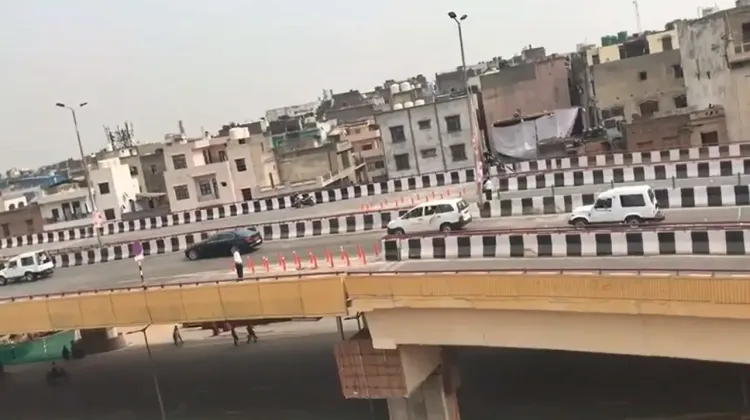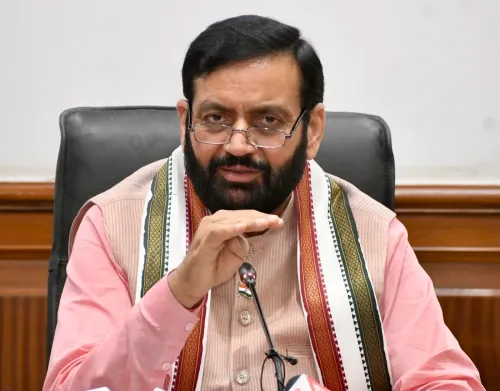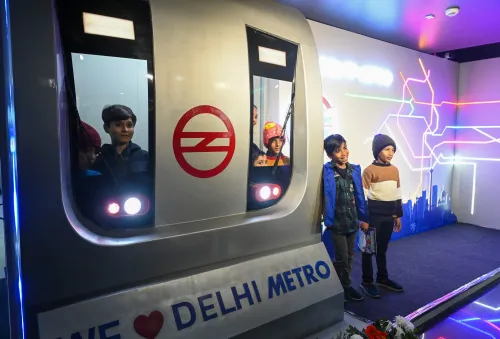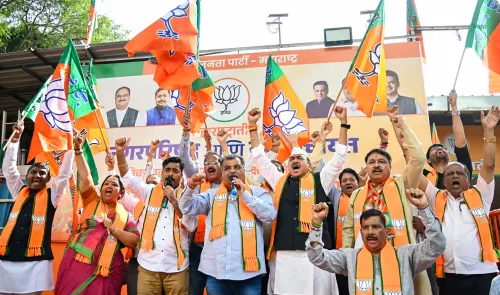Delhi: Lokpal Bench Uncovers Corruption in Rani Jhansi Flyover Land Acquisition During Sheila's Tenure

Synopsis
Key Takeaways
- Lokpal Bench confirms corruption in land acquisition.
- Justice A.M. Khanwilkar leads investigation.
- Possibility of criminal proceedings against officials.
- Irregularities in compensation distribution highlighted.
- Collusion between government and private entities established.
New Delhi, March 31 (NationPress) A Lokpal Bench led by Justice A.M. Khanwilkar has effectively confirmed the existence of corruption within the Sheila Dikshit-led Congress administration in Delhi. The bench has indicated the possibility of taking appropriate measures against implicated officials, potentially including criminal charges, concerning the mismanagement of compensation for land acquisition related to the Rani Jhansi flyover in north Delhi between 2009 and 2011, as reported by an official on Monday.
In its ruling, the bench stated, “A collusion of government officials and private entities who acted with malicious intent throughout the entire process has been established.”
“It is within the rights of the Competent Authority to pursue necessary actions against the culpable officials and to bring the matter to a proper conclusion, including potential criminal proceedings in accordance with legal protocols,” the bench elaborated in its latest ruling.
The Lokpal Bench was reviewing a complaint that sought accountability from members of the Delhi government’s Revenue Department and officials from the North Delhi Municipal Corporation for misconduct within the project, as indicated by an official.
The bench's ruling referenced a 2021 report from the Central Vigilance Commission (CVC) regarding land acquisitions by the collector, which highlighted that one landowner – Northern Cold Storage and Refrigeration Ltd. – was awarded compensation of Rs 9.9 crore for 1,183 sq metres of land while only owning 698 sq metres.
Furthermore, a 2023 report from a committee appointed by the Delhi Government’s chief secretary pointed out discrepancies in the Rs 25.67 crore compensation granted to Methodist Episcopal Church in South Asia (MECISA) and private individual Abhishek Gupta, who received Rs 3.45 crore despite not being named in the compensation allocation.
Following the committee’s recommendations, the Ministry of Home Affairs suspended Delhi’s land acquisition collector, Raj Kumar, who also served as secretary to the Delhi Legislative Assembly. Raj Kumar is a member of the 1995 batch of the Delhi, Andaman and Nicobar Islands Civil Services (DANICS).
The Lokpal Bench noted in its judgment that the preliminary investigation reports dated August 21, 2024, and a supplementary investigation conducted on October 15, 2024, disclosed that the land acquisition process was executed unlawfully, with government funds misappropriated and private individuals receiving unmerited benefits.
The Rani Jhansi Flyover project, spanning 1.8 km, was approved in March 2007 for an estimated Rs 177.72 crore. It was eventually inaugurated in 2018 after nearly a decade of delays, culminating in a total expenditure of Rs 725 crore.
However, the Lokpal Bench refrained from initiating actions against government officials for their alleged misconduct, citing that the irregularities occurred more than seven years prior to the complaint filed on August 5, 2020.
“We believe that the Lokpal of India lacks jurisdiction in this case due to the statute of limitations. Nevertheless, we emphasize that the Competent Authority is still entitled to take necessary actions against the involved officials and to pursue the matter through legal channels,” stated the bench led by Justice Khanwilkar.
The bench further clarified that “the dismissal of this complaint due to limitations will not impede any potential actions, which must continue according to legal standards.”










